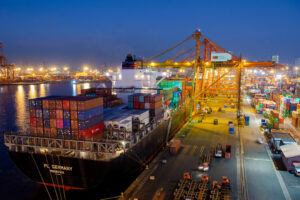By Justine Irish D. Tabile, Reporter
THE introduction of paperless trade will require reforms to the regulatory infrastructure and legal framework, according to the Philippine Exporters Confederation, Inc. (Philexport).
Citing Philippine Chamber of Commerce and Industry (PCCI) Chairman George T. Barcelon, Philexport said that a number of laws and policies are already in place to support electronic trade.
“(But) more needs to be undertaken to make the regulatory infrastructure and legal framework truly supportive of the transition to paperless trade,” it added in a statement over the weekend.
The PCCI said paperless trade makes processes more efficient, reduces costs, and makes the economy more competitive.
However, the business group said that “it is not going to be easy due to roadblocks that [the country] still has to overcome.”
“We need the amendment of laws, regulations, and policies to support the shift to digital transactions and to be aligned with international standards,” Mr. Barcelon said.
According to Mr. Barcelon, the interoperability of current platforms remains an issue. He said that the government and private sector need to develop common technical standards and data formats.
“Another issue is the rise of cyber threats such as hacking, fraud, and data breaches that pose a significant risk to the security and integrity of electronic data,” he said.
He said comprehensive cybersecurity regulations and strict enforcement of security standards should be put in place.
“Many companies, particularly the micro and small enterprises, don’t have the capacity to engage in digital trade due to issues like connectivity,” he added.
United Nations Economic and Social Commission for Asia and the Pacific Chief of Trade Policy Yann Duval said that digitizing trade data is “no longer an option.”
“Trade digitization benefits are clear. The most recent estimates we have show that achieving cross-border paperless trade could boost Philippine exports by about $9 billion, or 18%, including through a 4% reduction in trade cost,” he said.
He said that trade digitalization will result in improved wages and reduced prices and carbon dioxide emissions.
Trade Undersecretary Allan B. Gepty said electronic transferable records (ETRs) are crucial in international trade.
“Being the electronic equivalent of commercial documents such as bills of lading and letters of credit, ETRs are the key to unlocking smoother trade financing by allowing the uniform and harmonized cross-border flow of commercial data as well as more efficient global trade and supply chains,” Mr. Gepty said.
He recommended the adoption of the United Nations Model Law on Electronic Transferable Records, which is expected to empower businesses in efficiently participating in the global marketplace.

